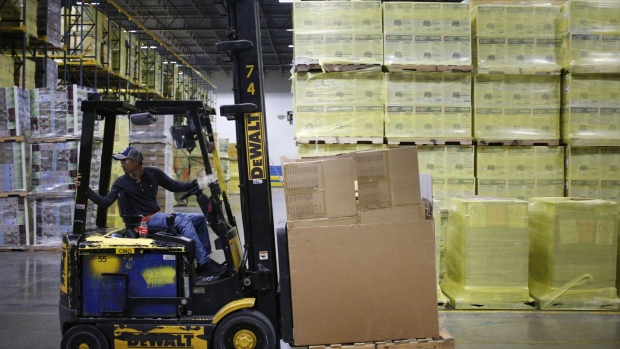Jun 27, 2023
Orders for US Business Equipment Increase for a Second Month
, Bloomberg News

(Bloomberg) -- Orders placed with US factories for business equipment rose in May for a second month, indicating companies continue to make longer-term investments despite high borrowing costs and economic uncertainty.
The value of core capital goods orders, a proxy for investment in equipment that excludes aircraft and military hardware, increased 0.7% last month after a downwardly revised 0.6% gain in April, Commerce Department figures showed Tuesday. The data aren’t adjusted for inflation.
Bookings for all durable goods — items meant to last at least three years — increased 1.7%. Excluding transportation, orders climbed 0.6%.
Steady capital expenditures highlight business efforts to improve efficiency in the wake of higher labor and materials costs. Yet, risks of a pullback in investment have grown against a backdrop of higher borrowing costs, tighter access to credit and a moderation in economic growth.
Several economists, including those at Bloomberg Economics, expect the economy to fall into an investment-driven recession this year, in part reflecting an anticipated tightening in credit conditions. Others, however, expect the US to skirt a downturn altogether.
Core capital goods shipments, a figure that is used to help calculate equipment investment in the government’s gross domestic product report, edged up 0.2%, in line with estimates. The third estimate of first quarter GDP will be released Thursday.
What Bloomberg Economics Says...
“The softening trend in core orders remains notable when examined over several quarters. We continue to expect higher borrowing costs and tighter bank-lending standards to restrain firms’ ability to expand going forward.”
— Stuart Paul, economist
To read the full note, click here
The gain in orders was concentrated in a few categories, including machinery, electrical equipment and motor vehicles. The Commerce Department’s report showed bookings for commercial aircraft, which are volatile from month to month, jumped 32.5%.
Boeing Co. reported 69 orders in May, about twice as many as in the prior month. While often helpful to compare the two, aircraft orders are volatile and the government data don’t always correlate with the planemaker’s monthly figures.
Orders for defense capital goods dropped after surging the prior month.
Regional and national surveys of manufacturing have pointed to widespread weakness across the sector. S&P Global’s flash factory purchasing managers index fell to a six-month low in June, and the Institute for Supply Management’s manufacturing gauge has indicated contraction for seven months.
--With assistance from Chris Middleton and Augusta Saraiva.
(Adds Bloomberg Economics comment)
©2023 Bloomberg L.P.


